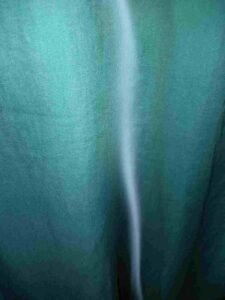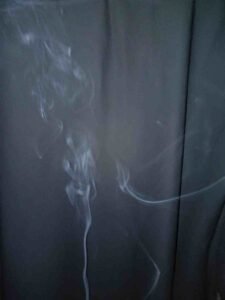Lysol can counteract the odors caused by cigarette smoke on surfaces. Given its potent disinfecting qualities, Lysol neutralizes the remnants of smoke particles, leaving spaces fresher. However, it should be paired with comprehensive cleaning and ample ventilation to maximize its effects.
From the perspective of someone deeply versed in home cleanliness solutions, I’m keen to analyze the efficacy of Lysol in countering the persistent aroma of cigarette smoke.
My thorough analysis is geared towards offering detailed insights, ensuring readers are equipped with the knowledge to address air quality challenges, especially in environments exposed to cigarette smoke.

Understanding cigarette smoke’s persistence
Cigarette emissions are comprised of minute entities known as particulate matter. These are chemicals that emanate from combusted tobacco. Such particles either settle on surfaces, recognized as “third-hand smoke”, or are absorbed by materials like fabric and carpeting. Both temperature and moisture play a role in determining the duration of their presence.
Cigarette smoke components: odors and health risks
Cigarette emissions amalgamate over 7,000 different chemicals. These include elements like carbon monoxide, nicotine, tar, and other harmful agents like hydrogen cyanide. The scent often associated with cigarette smoke primarily arises from evaporated nicotine. The tar, a sticky by-product, contains toxic chemicals and is a crucial odor contributor. Certain constituents of smoke, such as formaldehyde, have been linked to various ailments, including respiratory and cardiovascular issues and cancer.
The stubborn nature of cigarette smoke and the odorous and potentially harmful agents it carries emphasize the importance of reducing its presence and ensuring its effective removal from surfaces.
Lysol’s dual action: disinfection and odor neutralization
Lysol has built a reputation as both a formidable disinfectant and odor-neutralizer. The brand is celebrated for its germ-killing prowess and ability to eradicate unpleasant smells, making it a favorite in many homes and commercial spaces. The germ-eliminating capabilities of Lysol can be attributed to its active constituents that are designed to combat harmful microbes.
Unpacking Lysol’s ingredients and their odor-combatting abilities
Lysol’s effectiveness springs from components like benzalkonium chloride, which is renowned for targeting a spectrum of bacteria, fungi, and viruses. This compound also plays a pivotal role in counteracting odor-producing microbes. Additionally, components like ethanol and isopropyl alcohol present in Lysol are adept at dissolving odor-producing volatile compounds.
Lysol’s smoke bacteria and virus-killing power
Cigarette smoke contains numerous harmful particles, including bacteria and viruses, that can contribute to poor indoor air quality and pose health risks. Lysol’s ability to effectively kill bacteria and viruses makes it an excellent choice for combating these harmful microorganisms in cigarette smoke; by simply spraying Lysol in the air or on surfaces contaminated with cigarette smoke particles, the active ingredients in the product work to eliminate these pathogens, reducing the potential for respiratory ailments and promoting a cleaner and healthier environment.
Does Lysol get rid of the smoke smell?
Lysol primarily acts as a disinfectant, targeting bacteria and viruses on surfaces. Although its potent scent may briefly cover up the smoke smell, manufacturers did not design it to precisely remove smoke odors.
Does Lysol Get Rid Of Cigarette Smoke?
While Lysol can temporarily mask the odor of cigarette smoke, it does not effectively eliminate the harmful particles and persistent smell associated with cigarette smoke.
Unpacking Lysol’s Assertions
The established cleaning giant Lysol proudly showcases an impressive suite of products that pledge to sanitize and revitalize your surroundings. Lysol’s aerosol sprays, widely promoted as air sanitizers adept at counteracting unpleasant smells, command particular attention. With promises of eradicating smoke odors, these sprays are presented as the go-to solution for cigarette smoke.
Nevertheless, it’s crucial to point out that their promotional materials typically highlight odor neutralization rather than eliminating hazardous microscopic particles linked to cigarette smoke.
Scrutinizing the Science Behind These Assertions
On a scientific level, Lysol’s lineup comprises various active ingredients proven to eradicate bacteria and viruses, aiding in odor reduction. However, their efficacy in the face of cigarette smoke is an entirely different issue. Cigarette smoke is replete with harmful chemicals and delicate particulate matter that adhere to surfaces, and simply neutralizing odors doesn’t equate to removing these detrimental substances.
Particular air fresheners claim to eliminate unpleasant odors, sanitize the air, or minimize allergic reactions. However, validating these assertions through scientific means has proven challenging. Furthermore, it is essential to note that these products only offer temporary relief as they do not tackle the root cause of odors, bacteria, or allergens.
Real-Life Testimonials and Experiences
Real-life experiences provide a mixed bag of reviews. Some users report that Lysol sprays temporarily diminish the smell of cigarette smoke, providing a fresh, clean scent in the air. However, these testimonials often mention the recurrence of the smoke smell after a short while, indicating that the product is masking the odors rather than eliminating the smoke particles.
Other users express disappointment, stating that the Lysol scent blends with the smoke odor, not fully neutralizing it. Still, others note that while Lysol may not permanently eliminate the smell of cigarette smoke, it’s effective for a quick freshness boost recently exposed to smoke.

The Unexpected Reality
The Limitations of Lysol in Dealing with Cigarette Smoke
- Its primary role is as a disinfectant, focusing on eliminating bacteria and viruses, not specifically designed to counteract the complex makeup of cigarette smoke.
- While it can freshen up an area by masking the smell of cigarette smoke, it cannot eliminate the toxic chemicals and particulate matter associated with it.
- The effects of Lysol are temporary, and the original cigarette smoke odor tends to re-emerge after the Lysol fragrance dissipates.
Factors that Affect Lysol’s Effectiveness
- The concentration of smoke: A heavily smoked-in room may be beyond Lysol’s capacity to mask the smell effectively.
- Since the room was smoked in Fresh smoke, the duration might be temporarily covered more effectively than the long-standing smoke odor.
- The size and ventilation of the room: Larger, well-ventilated areas may require more products or frequent applications.
- The nature of surfaces in the room: Soft, porous surfaces (like fabric upholstery or carpets) absorb smoke particles more deeply than hard surfaces, making the odors more persistent.
The Difference Between Masking Odors and Truly Eliminating Them
| Masking Odors | Truly Eliminating Odors | |
| Definition | Covering up the smell with a more pleasant scent | Neutralizing or removing the source of the odor |
| Effect | Temporarily hides the original odor | Permanently eliminates the odor source |
| Outcome When Substance Wears Off | Original odor can resurface | A quick, short-term solution |
| Examples of Products | Air fresheners like Lysol | Specialized odor removers, ozone generators |
| Effect on Smoke Particles | Doesn’t affect smoke particles | Aims to remove or neutralize smoke particles |
| Use Case | Quick, short-term solution | Long-term, more thorough solution |
Alternatives to Lysol for Eliminating Cigarette Smoke
If the objective is to eliminate the lingering odor of cigarette smoke, Lysol may provide only a temporary solution. More comprehensive alternatives are recommended to address this issue entirely. Here are some suggestions for effectively removing cigarette smoke from your environment:
Air Cleaning Devices
High-efficiency particulate air (HEPA) filters in air purifiers are potent allies in your fight against cigarette smoke. They purify the air by trapping various particulates, including cigarette smoke. Some models have activated carbon filters that absorb and neutralize unpleasant smells.
Ozone-Producing Machines
Another efficient method to eradicate cigarette smoke odor involves using ozone generators. They produce ozone that reacts with and alters smoke molecules, effectively stopping the smell. However, caution is advised when using these devices.
Special Odor-Neutralizing Solutions
A variety of gels and sprays are available that have been specifically designed to address strong odors such as smoke.
In contrast to Lysol, these products do more than merely mask the odor – they interact with the odor-causing particles to eliminate the smell at the source.
Natural Options
Natural methods such as vinegar or baking soda can also effectively remove smoke odor. For instance, placing a bowl of vinegar or baking soda in a room can gradually absorb the smell of smoke.
Conclusion
Lysol can cover cigarette odors but doesn’t remove harmful particles. For a deeper clean against smoke, consider air purifiers or ozone machines. Other options include specific odor-removing products, natural methods, or hiring expert cleaners.
